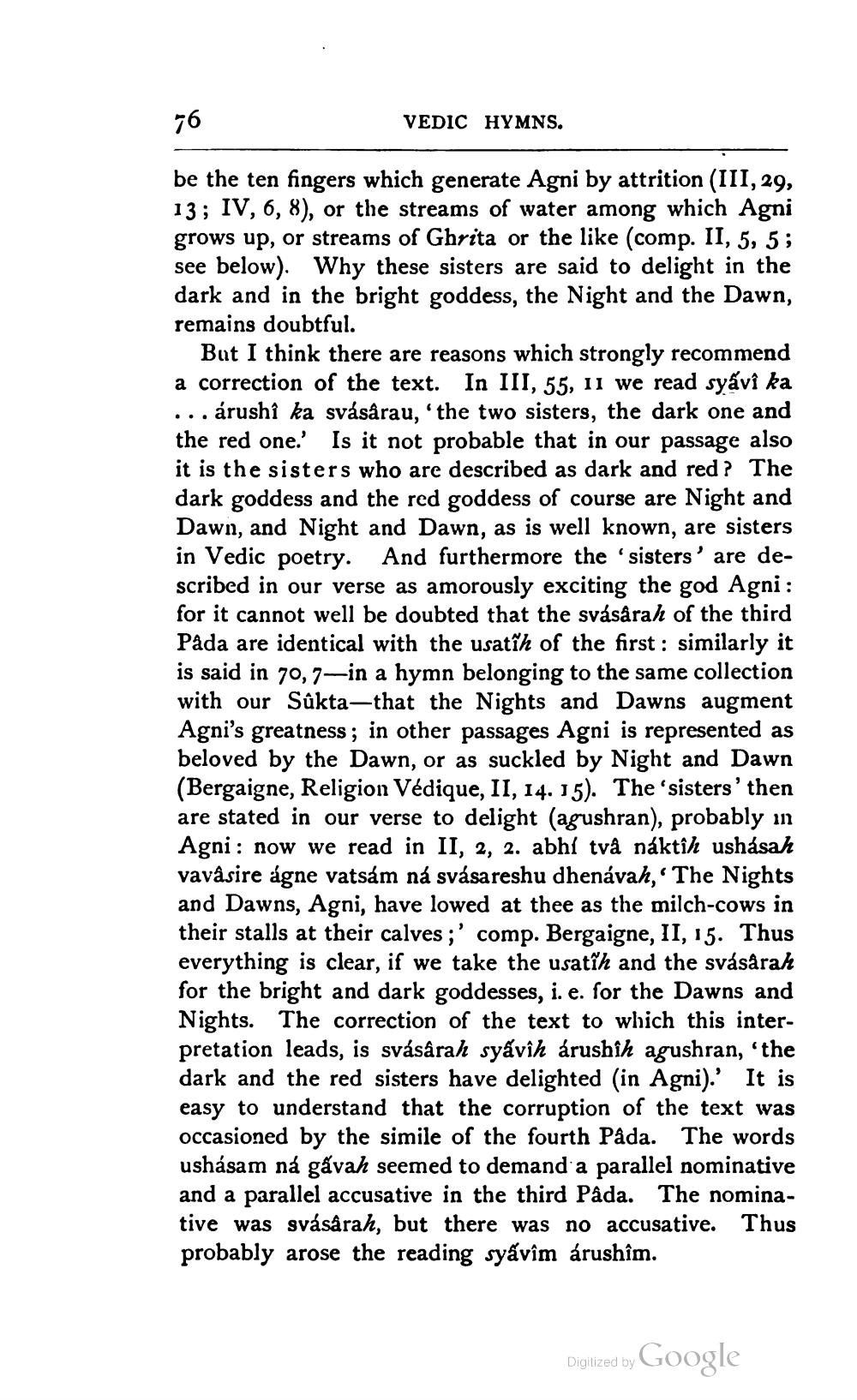________________
VEDIC HYMNS.
be the ten fingers which generate Agni by attrition (III, 29, 13; IV, 6, 8), or the streams of water among which Agni grows up, or streams of Ghrita or the like (comp. II, 5, 5; see below). Why these sisters are said to delight in the dark and in the bright goddess, the Night and the Dawn, remains doubtful.
But I think there are reasons which strongly recommend a correction of the text. In III, 55, 11 we read syavi ka ... árushî ka svásárau, 'the two sisters, the dark one and the red one.' Is it not probable that in our passage also it is the sisters who are described as dark and red? The dark goddess and the red goddess of course are Night and Dawn, and Night and Dawn, as is well known, are sisters in Vedic poetry. And furthermore the sisters' are described in our verse as amorously exciting the god Agni: for it cannot well be doubted that the svásårah of the third Pada are identical with the usatih of the first : similarly it is said in 70,7-in a hymn belonging to the same collection with our Sûkta—that the Nights and Dawns augment Agni's greatness; in other passages Agni is represented as beloved by the Dawn, or as suckled by Night and Dawn (Bergaigne, Religion Védique, II, 14. 15). The ‘sisters' then are stated in our verse to delight (agushran), probably in Agni: now we read in II, 2, 2. abhí två náktih ushásah vavâsire ágne vatsám ná svásareshu dhenavah,' The Nights and Dawns, Agni, have lowed at thee as the milch-cows in their stalls at their calves;' comp. Bergaigne, II, 15. Thus everything is clear, if we take the usatîh and the svásårah for the bright and dark goddesses, i. e. for the Dawns and Nights. The correction of the text to which this interpretation leads, is svásárah syavih árushîh agushran, 'the dark and the red sisters have delighted (in Agni).' It is easy to understand that the corruption of the text was occasioned by the simile of the fourth Pada. The words ushásam na gåvah seemed to demand a parallel nominative and a parallel accusative in the third Pâda. The nominative was svásárah, but there was no accusative. Thus probably arose the reading syavîm árushîm.
Digitized by Google




